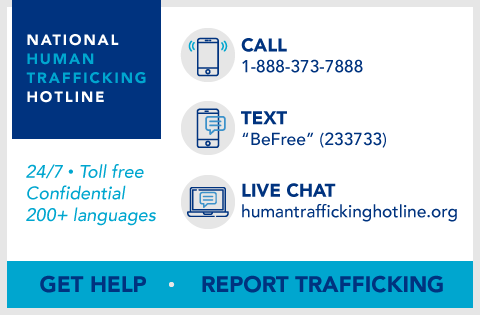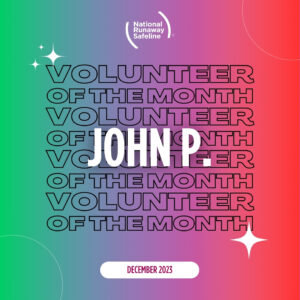Today, January 11, is National Human Trafficking Awareness Day. There are many different organizations and resources available for both trafficking victims and service providers.
Our partners at Polaris are leaders in combating and preventing human trafficking. They support survivors and work as advocates to draft and promote different legislature around anti-trafficking bills at both the state and federal level. Polaris also trains service providers, law enforcement, and other leaders in ways to identify and stop human trafficking.
Another large component of the work Polaris does is operate the National Human Trafficking Hotline, which provides human trafficking victims and survivors support and services to get help and stay safe. They are open 24 hours a day, 7 days a week. The hotline also collects tips about potential trafficking situations that may be in your area. In 2018 the hotline received 14,117 calls and there were 5,147 cases reported. They can be reached by:
- By phone: 1-888-373-7888
- By email:help@humantraffickinghotline.org
- By text: text HELP to 233733 (BEFREE)
- Online chat: humantraffickinghotline.org
There are many other local resources dedicated to supporting victims and stopping trafficking. To highlight a few:
- Allies Against Slavery works to end slavery in Austin, Texas. They engage their community through advocacy, education, and activism while supporting and empowering survivors.
- Wellspring Living is an organization in Atlanta, Georgia dedicated to helping domestic sex trafficking victims and those at-risk succeed and move forward.
- GEMS, located in New York, offers direct services to girls & young women who have experienced domestic trafficking
These are just a few of the organizations serving youth survivors of human trafficking. There are a few ways to access the closest services to you. The National Human Trafficking Hotline is able to connect individuals with resources in their area. The Office for Victims of Care created a services and task forces map of various local organizations funded by the Office for Victims of Crime and the Bureau of Justice Assistance. End Slavery Now has also put together a database of organizations to connect with.
As service providers to youth, organizations are in a unique position to recognize and support those who may be victims or at-risk to human trafficking. It is important to recognize the signs and also be educated on how to use a trauma-informed approach when working with individuals.
If you or someone you know is in crisis and may be experiencing trafficking, you can all the Human Trafficking Hotline listed above. The National Runaway Safeline is also here to support youth survivors on our 1-800-786-2929 hotline and online services (live chat, e-mail, forum) where we have a database of resources throughout the United States and territories.

